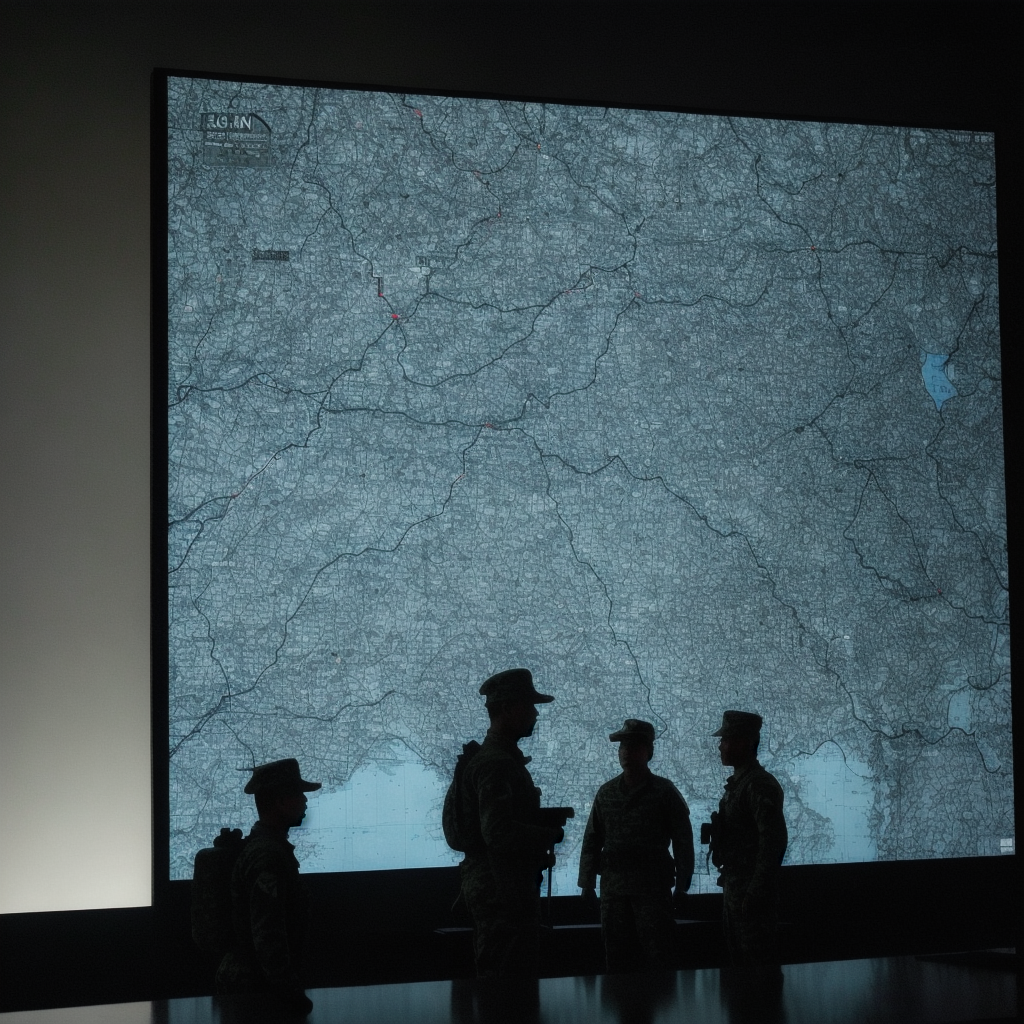
Myanmar’s Military Junta and its Spying Obsession
News Digest
– The Myanmar military junta is setting up an extreme surveillance regime compounding human rights violations.
– The blend of physical and digital scrutiny is peaking to unprecedented levels.
– Chinese-made surveillance technology deployed includes facial recognition and number-plate readers.
– Digital surveillance includes neutrally monitoring citizens’ online activity and mandatory SIM card registrations.
– Domestic and international organizations are raising alarms over disturbing violations of privacy and rights.
– The military’s sweeping measures raise prospects of indefinite oppressive rule.
The Perils of Technological Surveillance: A Peek Into Myanmar
The military coup in Myanmar has not only resulted in political instability but is also enabling an alarming level of invasion into people’s privacy. The junta has evidently developed a fondness for surveillance, making full use of technology to clench onto power and stifle dissent. The blend of physical and digital surveillance has now topped new peaks, and it’s especially worrisome not just because it violates the rights of the citizens but also because it could herald an era of indefinite strongman rule.
Chinese-made technology enabling facial recognition is at the junta’s disposal, transforming ordinary street lighting into a haunting technological Eye of Sauron. It’s not just faces getting scanned; even number plates on vehicles aren’t safe from scrutiny. In a regime where activists, rebels, and good-old-privacy-loving citizens are being hunted strategically, these technologies are more or less tools fostering fear and uncertainty.
As if that weren’t enough, the cyber-eye of the military junta extends into the digital realm as well. There is consistent monitoring of online activity and communications. Anyone expressing anti-government sentiments might have their digital footprints held against them. The government has also mandated SIM card registrations, enabling them to keep tabs on who, when, and where you are calling. No cloak-and-dagger stuff here, this is straight-up digital stalking made possible thanks to technological advancements.
These developments come as a disturbing shift away from at least the appearance of privacy that citizens had under the previous democratically elected government. Domestic and international human rights groups have sounded the alarm over these violations, yet the military junta seems undeterred. Global tech companies are coming under scrutiny for their role in providing these surveillance capabilities to such oppressive regimes. But tech, as they say, is a double-edged sword and depends on the wielder.
What makes these revelations even more concerning is that they could be a roadmap for future autocrats. The capabilities now available to suppress any form of dissent via digital and physical surveillance represent a frightening prospect for societies in transition. Arrests and disappearances made easier thanks to technology were once scenarios only imagined in dystopian fiction shows. Now, they have come to life.
A hot take on the situation
Societies fear Big Brother situations arising from state-run surveillance, as made famous by Orwell’s 1984. But let me tell you, Myanmar’s junta isn’t just Big Brother; they’re “Big Brother on Steroids”. Their affinity for surveillance can put the most neurotic detective to shame.
The most chilling part about this entire saga resides in the principles of tech neutrality – technology itself doesn’t do good or evil; it rests on the individuals wielding it. It just so happens in this case, tech is painting a very Orwellian picture indeed. It’s a grim reminder that democracies and governments across the world grapple with balancing surveillance against the backdrop of national security and personal freedom. Yet, herein lies the difference; Myanmar’s junta doesn’t seem interested in balance. It is, however, intensely focused on domination.
Now, the real question is, is there any antidote to this techno-dystopia? Transparency, accountability, and regulations that prevent misuse of technology could be the starting point. Garlands of international condemnation might sound nice and righteous, but remember, these boisterous words could bounce off the walls of such authoritarian regimes as easy as tennis balls.
Maybe it’s time for us to learn from Myanmar. Perhaps it’s time for democracies worldwide to reflect on the constraints they need to put on their very own surveillance programs. After all, the gap between surveillance for the ‘greater good’ and surveillance as a power tool is as thin as the glass that houses those high-tech cameras.